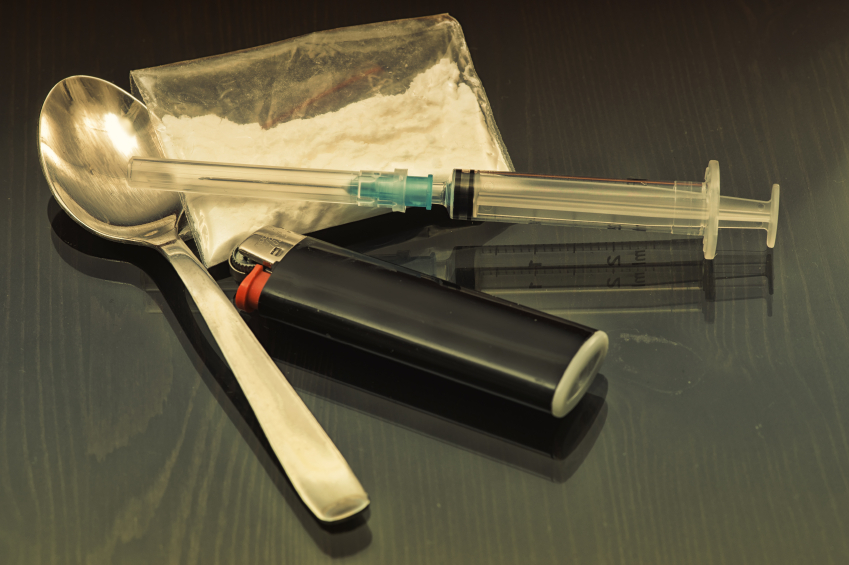Driving Under The Influence of Heroin


What does California consider driving under the influence of drugs?
Driving under the influence of drugs is a charge laid by the police against people driving while affected by any drug, apart from alcohol. Drugs can include illegal substances like heroin, cocaine, or methamphetamine, or they could be purchased legally or prescribed to you.
A drug is defined in the California Vehicle Code as a substance that “could so affect the nervous system, brain, or muscles of a person as to impair, to an appreciable degree, his ability to drive a vehicle in the manner that an ordinarily prudent and cautious man, in full possession of his faculties, using reasonable care, would drive a similar vehicle under like conditions.”
Regarding a drunk driving charge, there is a limit of 0.08% blood alcohol content in California. But there is no clearly defined limit for drugs. Police will usually build a case around test results showing the presence of drugs in your system as well as the quality of your driving itself.
How do police/prosecutors determine whether someone was driving under the influence of heroin?
Any driving under the influence investigation usually begins when police pull you over, or you get stopped at a checkpoint. If your driving appears impaired, a police officer will try to establish whether you may be driving under the influence. They might:
- Speak to you about your drinking or drug use
- Ask you to take a PAS test (preliminary screening test) on a breathalyzer
- Ask you to perform a field sobriety test (which you can refuse)
- Look for physical symptoms of drug use (e.g. dilation of your pupils, slurred speech, unusual behavior)
- Look for visible signs of drug paraphernalia in your vehicle.
If you are not above the blood alcohol limit, but it’s clear that your driving is impaired, the officer may suspect you are driving under the influence of drugs instead. The officer will often ask a drug recognition expert (DRE) to assess you (however, not all California counties have these officers) or ask you for a mouth swab test.
Mouth swab tests currently used in California can reveal the presence of certain drugs including opiates (such as heroin), but not the amount you have in your system. If you haven’t been arrested, you can refuse a mouth swab test.
If you are assessed by a DRE, it’s likely you will be taken to the police station: the expert needs a well-lit and quiet area to carry out these tests.
The DRE carries out a 12-step assessment, including:
- Interviewing the officer who arrested you about your driving and any comments you may have made
- Checking your physical symptoms—looking for any physical traces of drugs in your mouth or nose, observing your muscle tone and/or any track marks
- Taking your vital signs, heart rate, and temperature
- Eye tracking exams to check for eye jerking that might indicate drug consumption
- “Dark room” tests involving testing the reaction of your pupils to light
- More field sobriety tests
- Asking you about drug use and observing your behavior
- Asking you for a blood, breath, or urine test.
You can refuse chemical tests before you are arrested, but once the police have probable cause for arrest on a DUID charge, they can arrest you and require tests.
What are FSTs and should you submit to them?
Field sobriety tests in California include the Romberg Balance Test, the walk-and-turn test, the one-leg stand (where you have to stand with one leg off the ground for around 30 seconds), and the gaze nystagmus test, which tests for involuntary jerking of the eye.
These tests are designed to help the officer who stops you and the DRE form a conclusion about whether or not you are impaired by alcohol or drugs. If you fail these tests, the police could use this as probable cause for arrest.
Unfortunately, in a high stress situation such as being stopped by police, even people who are sober might not perform satisfactorily (particularly if the driver has problems with balance or coordination).
The good news is you do not have to take field sobriety tests: you can exercise your Fifth Amendment right and politely refuse. Please click here for more detailed information about field sobriety tests.
How do charges differ depending on the substance you were under the influence of?
Penalties for DUI don’t change depending on the substance you took, but they do differ in severity depending on the number of convictions you have for this offense.
For a first offense for driving under the influence of drugs, you can expect:
- Between three and five years of DUI probation
- A fine of several hundred dollars
- A DMV license suspension for six months
- A three-month drug education class (DUI school)
- In some counties, a short county jail term.
If test results reveal that you have some level of heroin in your system, but the police cannot prove that your driving was impaired, the prosecutor might charge you with “being under the influence of heroin” instead. This is a charge that allows you to access California’s drug diversion program, whereas “driving under the influence of heroin” does not.
If your car is searched and heroin is discovered, you might also be charged with possession of heroin for personal use. This charge is usually still a misdemeanor, and it carries a penalty of up to a year in county jail and a fine of up to $20,0000.
How can a lawyer help you?
A lawyer will examine the case against you and may be able challenge elements of the prosecution’s case, including:
- Whether police had probable cause to stop you
- Whether procedure during the DRE assessment was followed correctly
- Whether there were grounds for arrest
- Whether evidence was stored properly
- What level of drug you actually had in your system at the time (a toxicologist might be asked to give evidence) and whether you were impaired.
Call jD Law Criminal Defense Attorneys today for expert assistance, at (760) 630-2000.
Don’t Waste Any Time!
Call us today for a FREE Consultation
(760) 630-2000


- Criminal Law Expert - Led by a Board Certified Criminal Law Specialist. Read More
- 100s of Cases Tried - Since 1990, James Dicks has represented hundreds of clients. Read Bio
- Client Approved - Read our online testimonials from satisfied jD LAW Clients. Yelp Reviews
- May 30, 2024
When Juveniles Are Accused of Violent Crimes - May 20, 2024
What Should You Do During a Traffic Stop? - May 10, 2024
The Legal Concept of ‘Intent’ in Theft Crime …
 RSS
RSS




